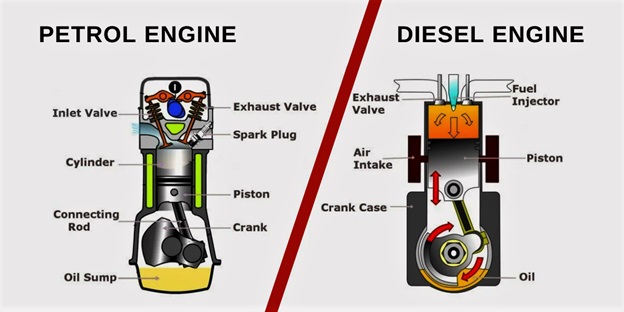Choosing between a petrol and diesel engine for your motorcycle is crucial. This guide offers insights into key considerations for selecting the ideal bike in India. Evaluate factors such as maintenance expenses, travel patterns, pricing, environmental impact, insurance costs, ride comfort, and resale value to make an informed decision. Prioritise comprehensive two-wheeler insurance for added protection.
Importance Of Two-Wheeler Insurance
Before delving into the engine types, it’s essential to highlight the significance of two-wheeler insurance. Third-party bike insurance is mandatory as per the law. Securing insurance for your motorcycle adds an extra layer of protection, fulfilling legal obligations and safeguarding your investment. Insurance providers offer a range of bike insurance options, ensuring comprehensive coverage. Explore the cost of policies through the Bajaj Allianz motor insurance premium calculator. *
Overview Of Petrol-Powered Bikes
Petrol bikes feature internal combustion engines running on petrol. The ignition process involves a spark plug, leading to gasoline expansion and the piston’s movement in response to the crankshaft. Petrol bikes can achieve a fuel efficiency of 50 to 60 kilometres per litre, depending on the engine’s cubic capacity, with regular maintenance.
Diesel Motorcycles: Understanding The Basics
Diesel motorcycles differ from petrol because they rely on compressed air instead of spark ignition. The diesel engine collects and compresses air before injecting fuel into the highly compressed air. The heat generated aids fuel ignition, resulting in higher fuel efficiency due to a higher compression ratio, typically 14 to 25 times the original volume.
Factors To Consider When Choosing Between Petrol And Diesel Bikes
- Maintenance Expenses
Maintenance costs vary between petrol and diesel bikes. While some parts for diesel motorcycles are pricier, the overall maintenance cost may be similar. The choice depends on whether the long-term durability of diesel bikes offsets the initial higher maintenance expenses.
- Price
Initially, diesel bikes may incur higher costs than petrol bikes. However, the long-term durability and lower overall costs make diesel bikes viable. Assess your budget and consider the total cost of ownership over time.
- Environmental Impact
Both petrol and diesel bikes contribute to pollution but differ in their emissions. Diesel engines produce more harmful particulate matter but less carbon dioxide, while petrol engines emit more CO2 but fewer particulates.
- Insurance Costs
The cost of obtaining two-wheeler third-party bike insurance and corresponding premiums is higher for diesel bikes. The intricate design of diesel engines and third-party bike insurance contributes to increased prices for replacement parts and components—factor in insurance costs when evaluating your chosen bike’s affordability.
- Resale Value
Diesel bikes retain their value better over time, resulting in higher resale values than petrol bikes. Consider your long-term plans and preferences for bike ownership when evaluating resale value.
The decision between petrol and diesel motorcycles depends on individual preferences and needs. Evaluate the above factors to make an informed decision that aligns with your priorities. Additionally, prioritise obtaining comprehensive two-wheeler insurance to safeguard your investment. Make sure you do the process of expired bike insurance renewal on time. Contact your insurance provider to buy bike insurance coverage tailored to your chosen model. Claims are subject to terms and conditions set forth under the motor insurance policy.
Get insured anytime, anywhere! Check out Bajaj Allianz General Insurance website to learn more and download the app now.
*Standard T&C Apply
Insurance is the subject matter of solicitation. For more details on benefits, exclusions, limitations, terms, and conditions, please read the sales brochure/policy wording carefully before concluding a sale.

